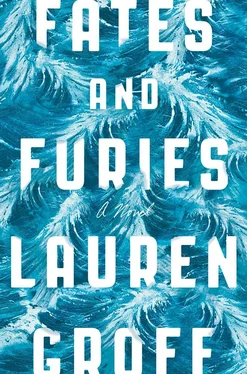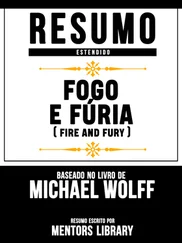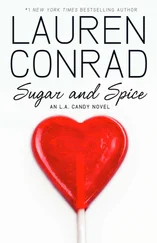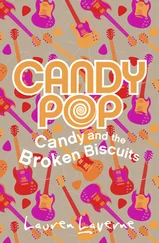Poor Muvva, he thought. So undone. So fat. She thought the painkillers she didn’t stop taking after Rachel was born were her secret. They were not.
Hours later, Lotto stood on the beach, blinking. The men with the briefcases had not been suitors, but attorneys. It was all gone. The servants had vanished. Who would do the work? The plantation house, his childhood, the bottling plant, the pool, Hamlin where his ancestors had lived forever, gone. His father’s ghost, gone. Traded for an obscene amount of money. The area was nice, Crescent Beach, but this house was tiny, pink, set on stilts above the dunes like a concrete Lego box on pilings. Beneath, all was palmetto tangle and pelicans canting in the hot, salted wind. This was a beach one could drive on. The pickups blaring thrash metal were hidden by the dunes, but in the house they could hear them.
“This?” he said. “You could’ve bought miles of beach, Muvva. Why are we in this dinky little box? Why here ?”
“Cheap. Foreclosure. That money’s not for me, darling,” his mother said. “It’s yours and your sister’s. It’s all in trust for you.” A martyr’s smile.
But what did he care about money? He hated it. [All his life, he’d avoid thinking of it, leaving the worry to others, assuming he’d have enough.] Money wasn’t his father, his father’s land.
“Betrayal,” Lotto said, weeping in fury.
His mother took his face in her hands, trying not to touch the pimples. “No, darling,” she said. Her smile was radiant. “Freedom.”
—
LOTTO SULKED. He sat alone on the sand. He poked dead jellyfish with sticks. He drank slushies outside the convenience store down on A1A.
And then he went for a taco at the stand where the cool kids ate lunches, this mini-yuppie in his polo shirts and madras shorts and docksiders, although this was a place where girls wore bikini tops to stores and boys left their shirts at home to bronze their muscles. He was six feet tall already, fourteen tipping into fifteen at the end of July. [A Leo, which explains him entirely.] All raw elbows and knees, his hair tufted in the back. The poor blasted acned skin. Bewildered, blinking, half orphaned; one longed to hold him to one’s body to soothe him. A few girls had been attracted, had asked his name, but he was too overwhelmed to be interesting, and they abandoned him.
He ate all by himself at a picnic table. A fleck of cilantro remained on his lips, which made a sleek-looking Asian boy laugh. Beside the Asian boy sat a wild-haired girl with slashes of eyeliner, red lipstick, a safety pin over her eyebrow, a fake emerald glittering in her nose. She was staring at him so intently Lotto felt his feet begin to tingle. She’d be good at sex, he understood, without knowing how. Beside the girl was a fat boy with glasses and a sly expression, the girl’s twin. The Asian boy was Michael; the intense girl was Gwennie. The fat boy would be the most important. His name was Chollie.
That day there was another Lancelot at the taco shack, this one called Lance. What were the odds? Lance was scrawny, pale due to a lack of vegetables, feigned a hitch in his walk, wore a hat sideways and a T-shirt so long that it bagged over the backs of his knees. He went beatboxing to the bathroom, and when he came back, he brought a stench with him. The boy behind him kicked his shirt and out fell a tiny poop.
Someone yelled, “Lance shat his shirt!” And this went around for a while until someone else remembered that there was another Lancelot, this one vulnerable, new, weird-looking, and Lotto was being asked, “Rookie, did we scare you shitless?” and “What’s your full name? Sir Luvsalot?” He slouched miserably. He left the food, trudged off. The twins and Michael caught up to him under a date palm. “That a real Polo?” Chollie asked, fingering the sleeve of his shirt. “Those things cost eighty bucks retail.” “Choll,” Gwennie said. “Stop with the consumerism.” Lotto said, shrugging, “A knockoff, I think,” though it clearly wasn’t. They looked at him for a long moment. “Interesting,” Chollie said. “He’s cute,” Michael said. They looked at Gwennie, who narrowed her eyes at Lotto until they were mascara-clotted slits. “Oh, fine,” she sighed. “We can keep him, I guess.” There was a dimple in her cheek when she smiled.
They were a little older, going into eleventh grade. They knew things he didn’t. He began to live for the sand, the beer, the drugs; he stole his mother’s painkillers to share. His sorrow for losing his father went vague during the day, though at night he still woke weeping. His birthday came, and he opened a card to find a weekly allowance that was stupid for a fifteen-year-old. Summer stretched long into the school year, ninth grade, a cakewalk with his memory. The beach was the constant from after school to night.
“Huff this,” the friends said. “Smoke this.” He huffed, he smoked, he forgot for a little while.
Gwennie was the most interesting of the three new friends. There was something broken in her, though nobody would tell him what. She’d walk through four lanes of traffic; she’d shove whipped cream cans into her backpack at the QuickieStop. She seemed feral to him, though the twins lived in a ranch house, had two parents, and Gwennie was taking three AP classes as a junior. Gwennie longed for Michael, and Michael put his hands on Lotto’s knees when the others weren’t looking, and Lotto dreamt at night of taking off Gwennie’s clothes and making her jiggle; once, late at night, he took her cold hand and she let him hold it for a moment before he squeezed it and let it go. Lotto sometimes imagined them all as if from a bird’s hover in the sky: round and round, they chased one another, only Chollie separate, gloomily watching the others’ endless circles, rarely trying to edge himself in.
“You know,” Chollie said to Lotto once, “I don’t think I’ve ever had a real friend before you.” They were in the arcade, playing video games and talking philosophy, Chollie from a bunch of tapes he’d gotten at the Salvation Army, Lotto from a ninth-grade textbook he could summon and quote without understanding. Lotto looked over and saw Pac-Man reflected in the grease blooms on Chollie’s forehead and chin. The other boy shoved his glasses up his nose, looking away. Lotto felt tender. “I like you, too,” he said, and he didn’t know it was true until he’d said the words aloud: Chollie, with his uncouthness, his loneliness, his innocent money hunger, reminded him of his father.
Lotto’s wild life was sustainable only into October. A small handful of months, to change so much.
This would be the pivot: late afternoon, Saturday. They’d been on the beach since morning. Chollie and Gwennie and Michael asleep on the red blanket. Sunburnt, salted by ocean, beer souring their mouths. Pipers, pelicans, an angler down the beach hauling in a foot-long golden fish. Lotto watched for a long time until an image slowly gathered that he’d seen in a book: red sea with a stony pathway flicking out into it like a hummingbird’s curled tongue. He picked up a shovel a child had left behind and began digging. Skin taut, as if coated in rubber glue; the burn was bad, but beneath, the muscles loved the movement. A strong body is a glory. The sea hissed and gurgled. Slowly, the other three awoke. Gwennie stood, pop pop of bikini flesh. Goodness, he would lick her crown to hallux. She looked at what he was doing. She understood. Tough girl, pierced, jailhouse-tattooed by her own pen and pins, but her eyes overflowed the liner. She knelt and bulldozed sand with her forearms. Chollie and Michael stole shovels from the beach cops’ truck bed. Michael shook a bottle of speed he’d taken from his mother into his palm and they licked the pills up. They took turns digging, popping their jaws. Four troubled kids in early October, through twilight deep into dark. Moon rose blowsily, pissing white on water. Michael gathered driftwood, started a fire. Gritty sandwiches long in the past. Hands blistered to blood. They didn’t care. For the most internal space, the beginning of the spiral, they flipped a lifeguard’s chair on its side and buried it and packed the sand down hard on it. One by one, they guessed aloud about what Lotto had meant by this sculpture: nautilus, fiddlehead, galaxy. Thread running off its spindle. Forces of nature, perfect in beauty, perfectly ephemeral, they guessed. He was too shy to say time. He’d woken with a dry tongue and the urge to make the abstract concrete, to build his new understanding: that this was the way that time was, a spiral. He loved the uselessness of all the effort, the ephemerality of the work. The ocean encroached. It licked their feet. It pushed around the outside wall of the spiral, fingering its way in. When the water had scooped the sand from the lifeguard’s chair, revealing white like bone beneath, something broke and the fragments spun into the future. [This day would bend back and shine itself into everything.]
Читать дальше












